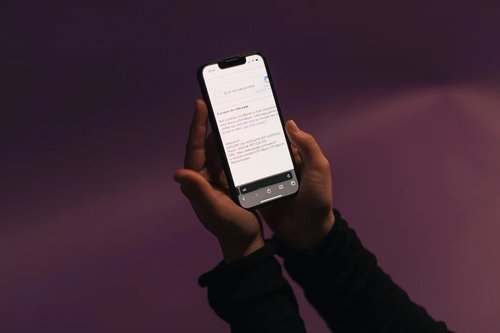The office scatterbrain: a lost cause?
Jan 27, 2020
5 mins


Communications & content manager
Imagine that you’re tucked away in a quiet meeting room at work, completing your weekly reports and dutifully avoiding distractions such as emails, Slack and your smartphone. But an hour and a half later, during a much-deserved break, reality hits you like a ton of bricks: you have one missed call, three text messages including one from your boss, PMs from your colleagues and, to top it all off, an email with the subject line, “Message from ground control.” That’s when you remember that the team meeting was moved up—and you are way behind schedule!
If you are someone who sends emails without attachments, forgets appointments, skips urgent tasks or turns up in the wrong meeting room or at the wrong time at your client’s office, then you’re not alone. You belong to the group for whom this article is intended—the absent-minded, easily distracted and sometimes flighty office dreamers of the world. It’s by no means the worst personality trait, but it can lead to some unfortunate consequences, which is why we’ve put together this article to help you turn over a new leaf.
Why do people make careless mistakes?
If you feel you could be the office scatterbrain, you’ve probably wondered at what point this character trait becomes serious. Well, this depends on how you look at it. If you’re wondering how normal it is, rest assured that it’s probably more common than you think. Several factors contribute to increasing the possibility of you making careless little mistakes at work.
- Excessive workload: Closely related to work stress, burnout is an emerging public health crisis because most companies don’t know how to deal with it. According to a recent study conducted by the Health and Safety Executive, 602,000 people in the UK suffer from work-related stress, which is often caused by contradictory instructions or demands from superiors, conflicts among colleagues or chronic overwork.
- Lack of concentration among employees. A major cause of poor concentration is our digital dependency: we spend an average of two hours 28 minutes a day on their phones, not all of which are outside the office. What’s more, this dependency is linked with poor sleeping habits, excessive multitasking, a dizzying number of new digital tools at our disposal, as well as all the distractions caused by social media, notifications and interruptions from colleagues or clients throughout the day. Research at the University of California Irvine showed that it takes approximately 23 minutes and 15 seconds to concentrate after an interruption. In addition, when you’re under pressure due to your own procrastination, you’re more likely to make mistakes.
- The increasing number of digital tools used by companies, which leads to a more splintered dissemination of information that was previously shared through a single channel. A good example of this is someone telling you that “it was on the XY channel on Slack” when you’re not even on that Slack channel.
What’s more, everyone is different and we all have naturally varying organisational and concentration skills.
A brief overview of workplace blunders
You might find yourself inconvenienced by your own carelessness, to put it mildly. Some examples might be:
- Leaving your laptop at home and finding yourself, at 9am, back to square one.
- Receiving an email asking, “Where’s the attachment?”, which makes you feel an idiot.
- Discovering a certain task or meeting has slipped your mind, which makes your boss angry.
- Failing to prepare a file properly and getting your team in trouble.
- Copying the wrong person, or people, into an email. If you speak French, check out this episode of Make My Dignity Great Again about the employee who accidently sends a Photoshopped image of her boss’s head on Putin riding the grizzly to everyone in the office, including her boss. Basically, this is the curse of “Reply to All”.
Damage control for the absent-minded
For every careless mistake and its consequences, there should be consistent follow-up. Here are the steps to take:
- Own up.
- Explain what happened.
- Apologise to those affected.
- If possible, fix it!
Obviously, the extent of your grovelling should be in keeping with the mistake itself. For small errors, a brief but self-deprecating joke, and an appropriate apology should do the trick. This works best for small office issues, such as sending an email without its attachment or posting something by mail when it was unnecessary. However, the best solution is always to complete the forgotten task or fix the mistake right away.
If you ever inadvertently embarrass or disrespect colleagues, it’s best to apologise. You can also explain to the offended person how the mistake happened; being open and honest can make forgiveness easier.
Finally, if your absent-mindedness has caused serious damage to your team or even the company, you must sit down with your manager and discuss the matter. In this case, it’s best to first identify:
- Why you made the mistake. Maybe it’s because of personal problems or an excessive workload, in which case you should ask for support.
- Your plan of action to fix things and prevent it from happening again.
These little tips will often set you back on the right path. However, sometimes neurological or mental health issues can be behind the mistake:
- Depression or burnout.
- Attention deficit disorder with or without hyperactivity.
How should these cases be approached? If you are suffering from depression or burnout, it is important to see a doctor or mental health professional. Moreover, based on advice or strategies you’ve worked on with your doctor, you may choose to notify your boss and/or management as well. If your mistakes are due an attention deficit disorder, it might be worth considering if you should report it to your employer as a disability. For your own peace of mind, it’s certainly worth properly assessing your own personal situation in order to help find the best solution.
How to be less of an office scatterbrain
Unless you are suffering from one of the aforementioned conditions—and even if you are—mistakes are never wholly inevitable. Here are some ideas for going from having a mind like a sieve to having a mind like a steel trap:
Memorise your deadlines
Establish a routine by making a paper or digital to-do list every morning so you won’t forget anything. A notebook and pen is the traditional way, but task organisation software such as Trello or Asana are just as effective. More importantly, they keep track of tasks throughout the day and enable you to add new ones as you advance through the list.
- Consult your diary or calendar every morning and set alerts the day before and for one hour before any important appointments. Google Calendar is practical because the alerts are sent via email. One clever technique is to make up a deadline two days before the actual cut-off point so you have time to fine-tune your work.
- Use alerts on your smartphone or Slack for the most important appointments. There are plenty of options to choose from: email, text message, notifications or your smartphone calendar.
There’s no point trying to memorise your entire schedule for the month. Depending on your level of responsibility and the schedule concerned, try taking stock every Monday or every weekday morning so you don’t miss anything important.
Get it out of your head
Write it down! The human brain can’t store endless amounts of information, so help out your little grey cells by jotting your thoughts down on paper. For example, you can create dedicated checklists per task: if you are doing a repetitive task in a long Excel document, list all the actions you must complete. Use the Eisenhower method to prioritise tasks. Writing a short to-do list is always a great way to reduce stress.
Improving concentration
Use the Pomodoro Technique, which works on the premise that we concentrate better if we work for 25-minute periods followed by breaks and dedicate the whole work period to carrying out a single task. It’s worth trying for those who wish to improve their concentration and train their brain to “stay connected”. If you are experiencing mental overload or have attention deficit disorder, then therapy can also help.
In a nutshell
In an increasingly connected and hectic world, it’s no surprise that concentration is waning, overwork is on the rise and mistakes are being made in the workplace.
Analysing the causes and effects helps us to face the issue of mistakes head on. Are they caused by fatigue or burnout? Excessive workloads? Or plain carelessness? Depending on the cause, there are many solutions, ranging from a simple reminder on your smartphone to therapy. To rid the workplace of scatterbrains big and small, a case-by-case approach is the best one to take.
Photo: Welcome to the Jungle
Translated by Andrea Schwam
Follow Welcome to the Jungle on Facebook and sign up for our newsletter to receive our best articles every week.

More inspiration: Productivity & tools

Goal setting: How to bounce back when you feel like a failure
The big F word ... Failure. We all face it, but here’s how to make it your secret weapon for success.
Dec 18, 2024

Productivity boost: Why mental health outshines long hours
Long hours don’t equal better work. Discover how mental health support can unlock productivity and time efficiency in the workplace.
Nov 28, 2024

10 fun ways people are using AI at work
While many use AI for basic tasks like grammar checks or voice assistants, others are finding innovative ways to spice up their work days.
Nov 05, 2024

12 Slack habits that drive us crazy
Slack is a top messaging platform, but coworkers can misuse it. Over-tagging and endless messages can make it frustrating ...
Oct 16, 2024

10 CareerTok creators you should be following
Looking for career advice? CareerTok has quick tips from real experts on interviews and job offers.
Sep 25, 2024
The newsletter that does the job
Want to keep up with the latest articles? Twice a week you can receive stories, jobs, and tips in your inbox.

Looking for your next job?
Over 200,000 people have found a job with Welcome to the Jungle.
Explore jobs